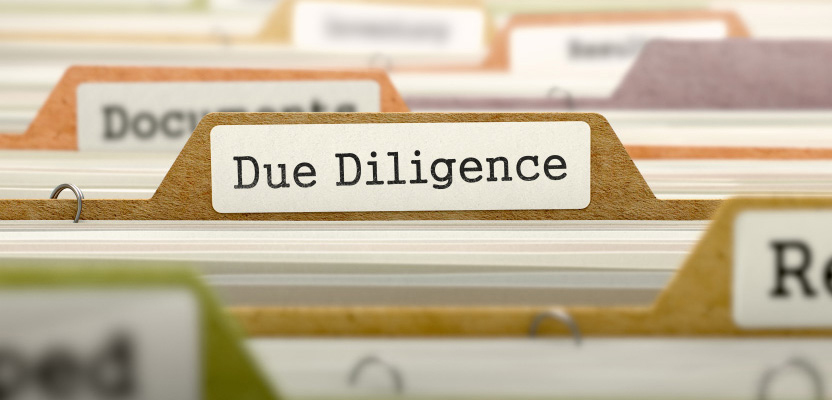You may have heard the phrase, “due diligence” in regards to buying a business, but you may be unfamiliar of what it entails. Essentially, due diligence means verifying the claims made by the business owner after the offer has been accepted. It is a vital process since it will show whether the purchase should go through. Usually, you will need to sign a confidentiality agreement that states the information found will not be disclosed.
What is due diligence?
The process of due diligence is one that provides a thorough investigation into a proposed investment transaction. It means you check the investment worthiness, and assess the full claims made by the owner. This check is usually performed by a solicitor and accountant who act on behalf of the buyer. A large portion of due diligence will involve checking financial statements and accounts.
Additionally, stock, contracts, legal documents, and other relevant documents may also be checked. A thorough due diligence will give you an accurate indication as to where the business currently stands, and the general performance that you can expect after the sale.
When should the process start?
Usually, the due diligence process begins after an offer has been accepted. However, you can start conducting your own research soon after you confirm interest. Sellers will be happy to provide copies of their accounts, however you can also find these directly from the Companies House WebCheck service. This tool allows you to get an early indication of accounts before you make a formal offer.
Aspects to Investigate
There are many areas of the business that are worth investigating, and the specific parts will largely depend on the type and complexity of the business involved. However, you should generally consider investigating the following aspects.
- Customer Contracts/Orders
- Financial Statements
- Accounts
- Stock (if relevant)
- Legal Documents
- Liabilities
- Reputation of the Company
Top Tips
The process of due diligence is vital, and it can seem a bit overwhelming even when you have the assistance of professionals. Here are some essential tips that will make the process more manageable;
Give Yourself Enough Time
The process can take around 4-6 weeks to be completed. Be sure to account for this time, and remain patient during the process. You may think you have all the details you need, however a thorough investigation is still important to confirm the facts. A month of waiting is certainly better than purchasing a business that comes with later surprises.
Be Prepared for the Process
Before you get the process started, it is important to be prepared as to which aspects will be investigated. This requires you to research the business, and look over the details that the owner has provided.
Rely on the Top Professionals
You won’t be able to do everything yourself, and when it comes to due diligence, you need the best accountant and solicitor by your side. They will be able to look through all of the financial and legal details, whilst ensuring that everything is properly inspected. The right people will help you check every single aspect of the business so that you can be sure that there will be no surprises waiting for you after the purchase has gone through.
Be Prepared for Surprises/Issues
Whilst the owner will have told you one side of the story, you will undoubtedly find one or two aspects that surprise you. This is completely natural, and it doesn’t automatically mean that you should walk away from the purchase. It is important to keep a cool head, and weigh up these findings in an objective manner. You will need to decide whether these issues will impact the running of the business, and what they mean for long-term prospects. An accountant and solicitor will be able to explain the significance of them in more depth. Small issues tend to be passable, but there will be certain issues that can lead to a renegotiation.
Closing Thoughts
You will now have a clearer idea on which specific aspects are worth investigating as part of conducting due diligence. It is important to be as thorough as possible so that you can ensure that seller’s claims are true, and to get a more objective analysis of the business. If any significant issues are found, there may be room for negotiation or you may be inclined to walk away from the deal. In any case, it is always better to find these problems before the purchase is completed rather than seeing them appear when you are months into running the business.

